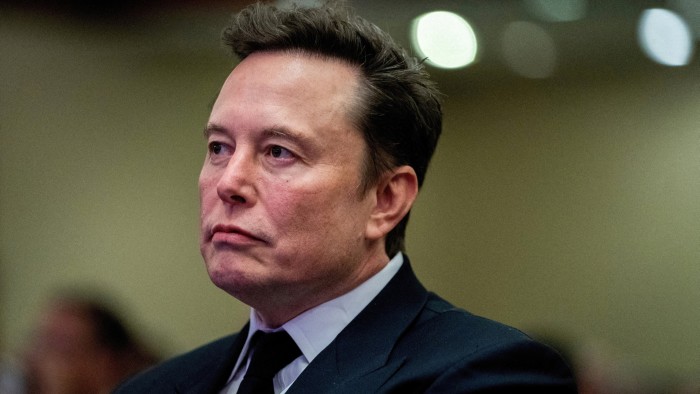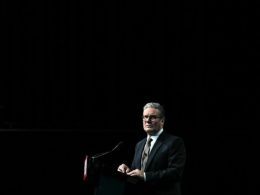Unlock the White House Watch newsletter for free
Your guide to what the 2024 US election means for Washington and the world
Elon Musk’s plan to slash the federal workforce under Donald Trump is poised to upend one of the strongest engines of the US labour market: the government.
Government and healthcare jobs have been the biggest source of employment in the past year, particularly for knowledge workers, data shows. US job recruiters, economists and labour leaders fear the plan to cut the workforce could crimp the number of good available jobs at a time of declining private-sector employment, compounding already-stiff competition for white-collar jobs.
“We’re getting closer to where we are not creating as many jobs as we need to keep up with the population,” said Cory Stahle, an economist at jobs site Indeed. With fewer federal openings, “we start entering a territory where [the labour market] starts to get a little bit sketchier”.
Excluding the Postal Service, the federal government created 2,100 jobs in October. Total payrolls grew by only 12,000 workers that month, according to the labour department, as private sector payrolls were damped by strikes and Hurricanes Helene and Milton.
The federal government employs just 2 per cent of the US workforce but has been among the largest creators of white-collar jobs in recent years. The jobs of its 3mn civilian employees range from law enforcement officers at airports and prisons to medical providers to postal workers.
The popularity of government work has exploded as workers, particularly younger ones, seek out stability after headline-grabbing lay-offs in tech and on Wall Street. Handshake, a US jobs site targeting college students and recent graduates, reported applications to federal government jobs grew 55 per cent last year. Others are after robust healthcare and retirement benefits, said Andy Challenger of outplacement firm Challenger, Gray and Christmas.
That all stands to change after Trump enters the White House next month. Reducing the size of the federal government was a cornerstone of the president-elect’s campaign, and he has appointed Musk and Vivek Ramaswamy to lead an initiative called the Department of Government Efficiency to cut costs. The two pledged to encourage voluntary departures by eliminating remote work options and offering early retirement packages, they wrote in The Wall Street Journal last month.
“Under President Trump’s leadership, the Government Efficiency effort led by Vivek and Elon will target waste and fraud throughout our massive federal bureaucracy,” Brian Hughes, a spokesperson for the Trump transition team, said in an emailed statement.
The US payroll costs taxpayers $271bn annually, or roughly 4 per cent of the $6.3tn in federal spending during fiscal year 2022, according to the Congressional Budget Office. The government spends far more on contractors at $750bn, a total union leaders say will rise after mass lay-offs.
Musk and Ramaswamy said they plan “mass headcount reductions” in order to eliminate more than $500bn in annual spending. Musk has already begun targeting climate-related jobs, calling out ordinary employees he hopes to fire by name in posts on X. All appeared to be in specialised fields such as clean energy and emerging markets. One, Missy Cummings, had criticised Tesla during her tenure at the National Highway Traffic Safety Administration.
Though experts are sceptical that Doge can spur mass lay-offs, job seekers are already moving towards the private sector.
Lesley Mitler, a career coach who specialises in college students, said: “If people come to me and say they want to work in Washington, DC, I would say, ‘Why don’t we see how things evolve, before making that kind of commitment?’”
Current government employees, however, are gearing up for a fight, said Jacqueline Simon, policy director of the American Federation of Government Employees, the largest union of federal government workers, who described the mood in her union as “defiant”.
Government staff are aware that US-wide job openings have fallen 11 per cent, or by 1mn, over the past year and are “scared”, said Randy Erwin, the president of the National Federation of Federal Employees.
Asked where her members might look for jobs should Trump’s plans succeed, Simon said: “I have no idea.”
Source link









